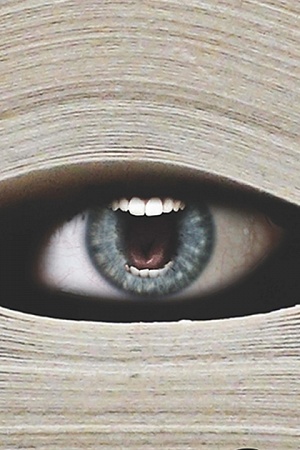Till ‘real voices’ wake us, and we drown

We can learn much about a culture by listening to how it talks about its art. The way non-white writers, for want of a better phrase, tend to be reviewed in Australia tells us a lot about how we determine cultural value. Some reviewers place a premium on the author’s biography – her identity – rather than on her work itself. The reviewer avoids critical engagement with the text in favour of a kind of reverential praise of its political messaging. This messaging isn’t necessarily determined by the content of the work, but rather by a mistaken conflation of the work with the author’s cultural identity. It’s a kind of habit, a reflexive way of reading literature, especially literature by non-white authors, as if the mere act of writing a book were fundamentally and inevitably political – or, as they say, an ‘act of resistance’.
I too have nodded along to the old dictum ‘all art is political’. Its satisfying consonance lends it the heft of any halfway-decent party line. And yet I have always suspected that its meaning is opaque. I’m not suggesting that art can’t be political, nor am I underestimating its power. But, to me, political impact has never been a useful measure of art’s worth or success. As a reader, I measure a novel or a poem by its capacity to move me. This is the first imperative: all else follows. I’m thinking of the first novels I read that made me feel this way, and how, as a child, I celebrated the idea that these marks on a page had the power to change how I thought and felt. I recognised elements of my own consciousness in that of another’s – in Scout’s open-heartedness as much as in Mayella Ewell’s cowardice – and saw how, within the privacy of a book, this wasn’t a shameful thing to experience. The point of fiction and poetry to me is empathy. I feel it most strongly when I’m writing an essay of this kind. No matter how much I’d like to believe I’m embarking upon some exercise of personal discovery, I know that the truth isn’t nearly as noble. I don’t want people to see things the way I do – I want to convince them. Contemporary fiction and poetry, on the other hand, encourage you to think, and feel, more deeply. You don’t fail it – nor it you – if you leave a book with your perspective unchanged, unable to identify with its premise, its language, its characters. This is not a diagnosis but an instinct, and I don’t expect each reader to feel the same way. And here is another gift that literature brings us – myriad avenues of escape and response. You don’t need to subscribe to a writer’s ideology, nor share any element of her biography, to feel a personal connection to her work. The possibilities for ‘identifying’ with someone are more than skin-deep. How reductive life and art would be if we were stirred only by those who thought and looked like us.
Continue reading for only $10 per month. Subscribe and gain full access to Australian Book Review. Already a subscriber? Sign in. If you need assistance, feel free to contact us.









Comments (4)